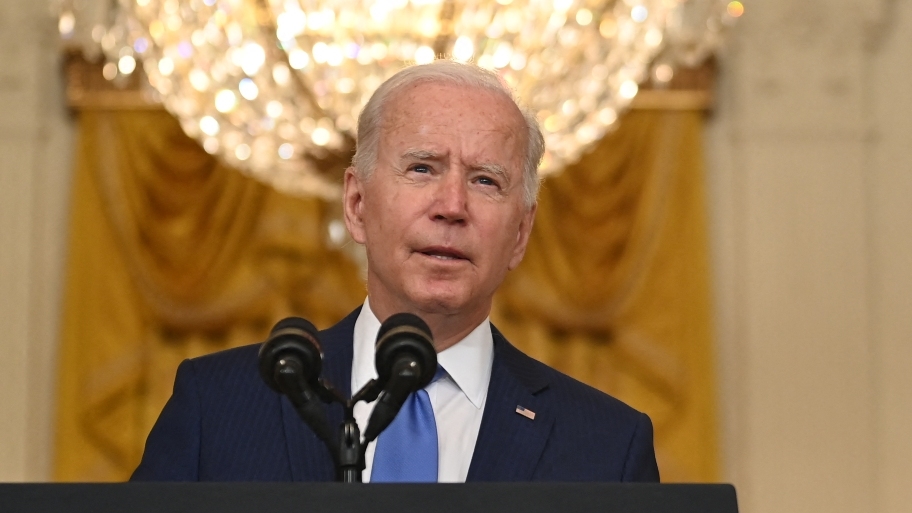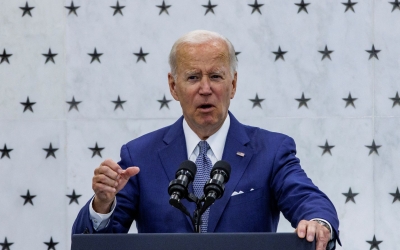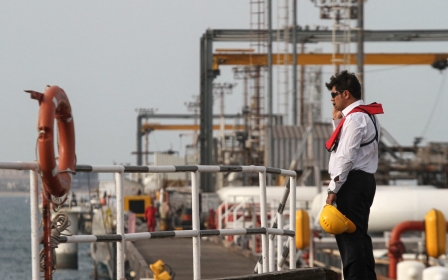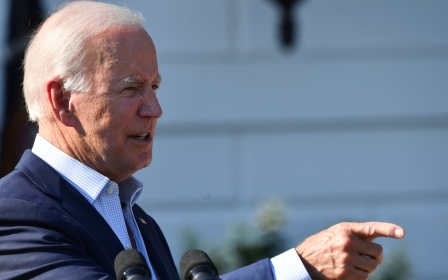Biden's Middle East visit spells greater repression for Palestinians and Gulf activists, experts say

As US President Joe Biden travels to Israel and Saudi Arabia later this week, where all eyes will be on whether or not the two countries move towards normalisation, Middle East experts say that any rapprochement will lead to an increase in repression for Palestinians and activists in the Gulf region.
Biden's first visit to the Middle East as US president will begin in Israel, then to the occupied West Bank, and will conclude with a visit to the Saudi Arabian city of Jeddah, where he will attend a summit with Arab leaders.
New MEE newsletter: Jerusalem Dispatch
Sign up to get the latest insights and analysis on Israel-Palestine, alongside Turkey Unpacked and other MEE newsletters
Some experts argue the visit appears to be a sign that Washington is forsaking any meaningful contribution toward solving the Israeli-Palestinian conflict and rather solely pursuing further Israeli ties with Arab countries.
"This is just completely throwing the Palestinians under the bus and pretending that this is peace," Trita Parsi, executive vice president of the Quincy Institute, said during a webinar on Monday, hosted by the Foundation for Middle East Peace.
In 2020, the administration of former US President Donald Trump brokered normalisation agreements between Israel and four Arab countries - the United Arab Emirates, Bahrain, Sudan and Morocco. The agreements broke a long-standing consensus in the Arab world that normalisation with Israel would only come with significant concessions for Palestinians.
Activists have said that over the past several years, the repression of Palestinians living under Israeli occupation has increased significantly, with the rise of technologies like Blue Wolf - which captures images of Palestinians and matches them to an Israeli military database - and Pegasus spyware, which hacks users' phones.
"What it means for the Palestinian public is increased repression, because these agreements have a component that deals with repressive technologies and the development of these technologies," Dana el-Kurd, an assistant professor at the University of Richmond, said of any future agreements between Israel and Arab countries.
Rise in quelling of dissent
In addition to the narrowing space for protest and opposition faced by Palestinians, Arab citizens opposed to normalisation, as well as Gulf activists, face a risk as normalisation with Israel also opens their own countries up to a rise in the quelling of dissent.
Hacking technology from Israeli spyware firms has reportedly been sold to Gulf countries, where they have been used to target the phones of activists, journalists, and dissidents.
"These are different countries that need Israel's assistance in repressing their own populations, not just because of the Abraham Accords, but in general," Parsi said of Arab countries that have normalised ties with Israel.
Kurd said public polling shows that most Arab citizens are highly opposed to the normalisation of relations with Israel.
"So when the state goes ahead and pursues these normalisation deals at odds with societal sentiment, there is often opposition and dissent which is then cracked down on," she said.
"Especially between the UAE and Israel, there are these investments in repressive technologies in the sharing of repressive technologies, including surveillance that has already been used against activists in these countries."
"[It] has really impacted the levels of trust in society, people are afraid of one another," she added.
Middle East Eye delivers independent and unrivalled coverage and analysis of the Middle East, North Africa and beyond. To learn more about republishing this content and the associated fees, please fill out this form. More about MEE can be found here.





